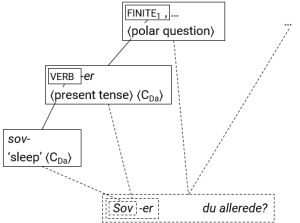
In mainstream 20th-century linguistic and grammar theory, multilingualism is usually seen as an exceptional case as opposed to monolingualism, which is seen as the prototypical case. Consequently, language systems are described as monolingual, largely variation-free, and static. On the other hand, contact linguistic research shows that, on a historic and global scale, multilingualism is clearly the rule rather than an exception. While language contact is the normal state of languages, speaker groups, and individual speakers, monolingualism in a narrow sense (i.e. monolectalism) does not even exist: all speakers are multilingual or at least multilectal to some extent, meaning that they use several different (standard) languages or various varieties/dialects productively or receptively to some degree – in other words, speakers utilize a range of linguistic resources in a way that is communicatively adequate in.
Based on these insights, this project aims at developing a socio-cognitively realistic construction grammar approach to multlilingualism and language contact (Diasystematic Construction Grammar, DCxG). DCxG is normal usage-based construction grammar as applied to language contact situations and works without any additional assumptions. In particular, DCxG assumes that (a) linguistic knowledge is cognitively stored and processed as constructions, (b) constructions are pairings of form and function, and (c) linguistic knowledge is organized through domain-general cognitive processes.
DCxG sees grammars as being community-specific, not language-specific. In DCxG, different languages are not represented by different language systems that are a priori seen as separate entities. Rather, language-specificity is a pragmatic, and gradual, property of individual constructions. Language-specific and unspecific constructions are interconnected by a common network.
In recent years, DCxG has been increasingly adopted by researchers and applied to different language contact situations.